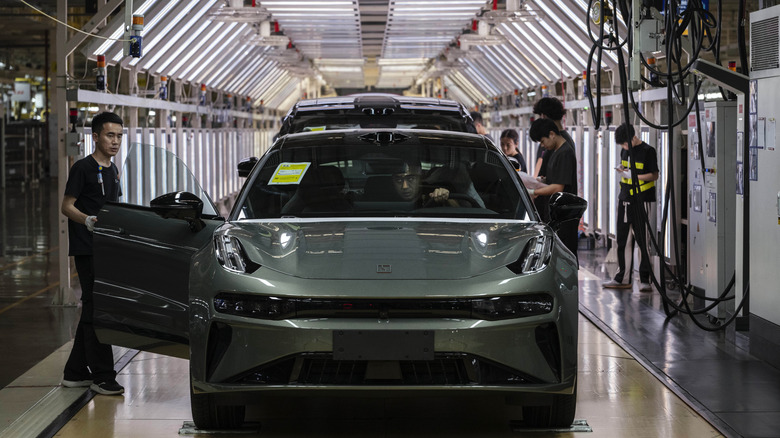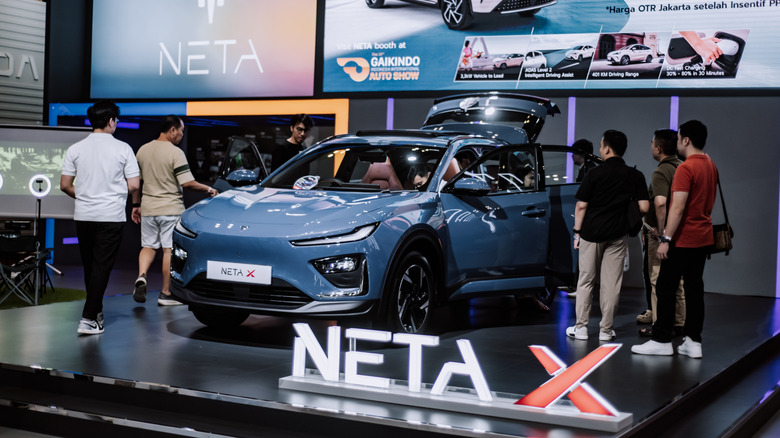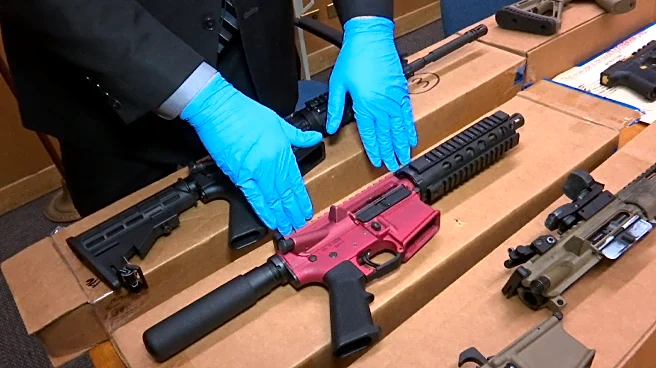
Chinese vehicle sales have seemingly exploded across the world (save for the U.S.), but it looks like at least some of that might be smoke and mirrors. A new report from Reuters says that Chinese automakers
Neta and Zeekr inflated sales numbers in recent years as a way to hit aggressive targets.
The companies would arrange to have some cars insured before they were actually sold to buyers, according to documents reviewed by the outlet. It would enable them — under Chinese industry car registration practices — to book sales early so they could hit monthly and quarterly targets. Folks, this is some shady stuff right here.
Neta carried out this scheme with at least 64,719 vehicles between January of 2023 and March of 2024. That accounts for over half of the 117,000 vehicles it supposedly sold over those 15 months, Reuters reports. It's possible the practice could have started all the way back in 2022. To obtain EV subsidies. Geely's Zeekr used a similar method to book early sales in late 2024 in the Chinese city of Xiamen through its main dealer there — a state-owned store called Xiamen C&D Automobile. These cars that are booked as sold before they get to the buyer are known as "zero-mileage used vehicles" in the Chinese auto industry. It's pretty easy to see why a scheme like this would emerge: extreme competition for sales in the world's largest auto market.
In an effort to cut down on this practice, the Chinese Ministry of Industry and Information Technology (MIIT) could ban cars from being resold within six months of being registered as a sale, according to Auto Review, a publication run by the China Association of Auto Manufacturers.
Read more: You'd Only Drive These Cars If They Were Free
How This Came To Light

Recently, Chinese state media reported that Zeekr had been selling cars that were already insured to inflate sales. State media interviewed car buyers in cities like Guangzhou and Chongqing who apparently found out their seemingly new cars had already been insured before they took delivery. They said they were refused refunds despite the fact that they felt they had been deceived.
Three Neta buyers who spoke with Reuters said the dealers had not told them about the policies, and they didn't find out about them until they expired.
The newspaper, the China Securities Journal, began questioning Zeekr's weirdly high sales in the cities of Shenzhen and Xiamen back in December, according to Reuters. It's reported sales based off insurance records in one of the cities hit 2,737 vehicles that month — 14 times its usual monthly average. It noticed similar abnormalities for Neta in other cities.
Here's how the companies have responded so far, according to Reuters:
Zhejiang Hozon New Energy Automobile, which owns Neta, and Xiamen C&D did not respond to requests for comment on Saturday. A spokesperson for Geely said, "Geely firmly rejects the report put forward by the China Securities Journal." The spokesperson declined to comment on Reuters findings or provide further details.
Zeekr said on Sunday on its account on Chinese social media platform Weibo that the vehicles mentioned in the media reports were for showroom display. It confirmed that the cars had been insured with mandatory traffic insurance, saying that it was for ensuring safety while being exhibited, and that they were still legally new when sold to buyers.
It did not directly answer Reuters' questions on whether it had counted them as retail sales. However, its Weibo statement said it had also set up a special team to investigate the sales issues raised in the media reports, without going into further details.
It's sort of a wild thought, but I'm getting the feeling that China might have too many car companies at this point. This competition is clearly forcing a few of them to do some seriously shady practices. I'm not sure how you fix something like this other than by thinning the herd a bit. While China is the world's largest automarket, it's becoming abundantly clear that it cannot support this myriad of companies.
Want more like this? Join the Jalopnik newsletter to get the latest auto news sent straight to your inbox...
Read the original article on Jalopnik.












